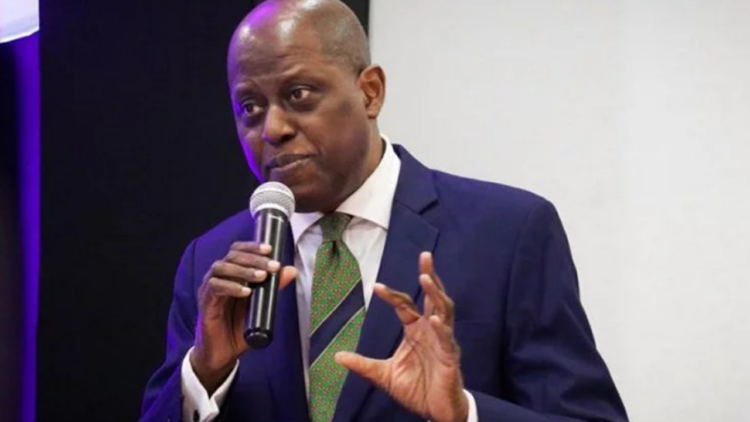...To get all news updates, Join our WhatsApp Group (Click Here)
Also Join our WhatsApp Channel (Click Here)
It was unprecedented, and never before seen, the way the naira to the dollar exchange rate galloped out of control. There was close to a 300% fall in the value of the naira against the dollar. From as low as 450 naira to the dollar, we witnessed an astronomical climb to about 1900 naira to the dollar. It defied all economic theories and indices, as the CBN huffed and puffed to anchor the psuedo-fall of the naira. The dollar remained bullish and defied all the laws known to the nation’s financial regulators, including the ‘laws of gravity’ within those 8 months spell. Ten months after, the dollar that was rearing towards a rate of 2,000 naira to the dollar, has now plummeted to about 1,362 naira to a dollar at the parallel market. The dollar-rate run has finally come to a halt, but not without some very drastic measures put in place by the apex bank.
It was more than evident that the exchange rate was not determined by market forces. The per-second shift in rate was egged on by speculators who had made the naira a commodity, and were making a kill off of the buying and selling of the naira and dollar. They were enabled by online exchange platforms, especially Binance and other cryptocurrency channels. The CBN had to clampdown on these agents. Notably, Binance executives were interrogated by the CBN along with the NSA’s office over fraudulent activities enabled by their platform, that saw to the manipulation of the naira-dollar exchange rate. Binance had just recently been fined over 4 billion dollars for financial impropriety in the US, and it remains to be seen whether the CBN will take such measures, including their demand for the names of subscribers that have been used as proxies for the sponsorship of terrorism.
The partners in crime to the cryptocurrency exchange platforms have been the BDCs. They also arbitrarily switched exchange rates along the lines of the rates quoted by the online platforms. The CBN along with the EFCC had to crackdown on some of the manipulative BDC operators across the country. More than 4000 BDCs had their licenses revoked. Some due to irregularities, and some for fraudulent activities. The CBN has in addition, released new guidelines for the operations of the BDCs, including an increase in the capital requirements to bolster the regulation of the BDC operations in the country. Other measures taken includes the decision to allow International Oil Companies repatriate only 50% of their proceeds abroad. There’s also the enforcement of the Net Open Position of commercial banks, as it was seen that the banks were holding far too much foreign exchange than they are supposed to. The aforementioned efforts have in turn made the naira bullish in its climb up the exchange rate capsule, regaining some of its lost glory. The CBN’s understanding with IMOs is also making available an estimated 20 billion dollars into the Nigerian Market from diaspora remittances. Even the Almighty NNPC is today channeling its earnings to the CBN, which is also boosting our FX reserves and building on transparency.
2024 is seeing a lot of positives from the CBN’s tough stances and decisions. It has been able to clear FX backlogs of about 7 billion dollars which will no doubt boost investors’ confidence. Its recent offer of 500 billion naira at the OMO auction was over-subscribed, selling N1.053 trillion, with 79% of the total bids (530 million dollars), coming from foreign investors. This is quite impressive and is a sign that foreign investments are queueing into the country. The CBN has also been able to sustain increases in our foreign reserves, thereby sustaining the availability of forex in the exchange market. As the nation’s daily crude output increases, it will also help improve on our forex inflow, along with other FPIs.
A lot of Nigerians insist that Nigeria does not have a money problem but a spending problem. Just recently, there was a lot of buzz around a seminar hosted for State commissioners of finance at a Hilton hotel in the UK. Those kinds of events and other foreign travels that become jamborees, eats up quite an amount of foreign exchange, and if you put the figures together from all government ministries and agencies, it could be nothing short of a few billion dollars per annum. As a measure to that kind of waste, Mr. President issued a directive to the SGF’s office, banning all foreign trips by all government officials, except with the express approval of the Presidency. This move certainly looks like a Cardoso advisory. It would be a waste of effort and policy if the CBN is struggling to rake in foreign exchange, meanwhile government officials are draining the purse on trips that should be avoided in times of austerity like this. During the campaigns, Mr. President told us about the trust he reposes in the Headmaster, Mr Cardoso. From what we have seen so far with the Headmaster, the naira is ‘headed’ for more gains in no time!
You can get every of our news as soon as they drop on WhatsApp ...To get all news updates, Join our WhatsApp Group (Click Here)
Also Join our WhatsApp Channel (Click Here)

















